Awareness About Hypertension |
|---|
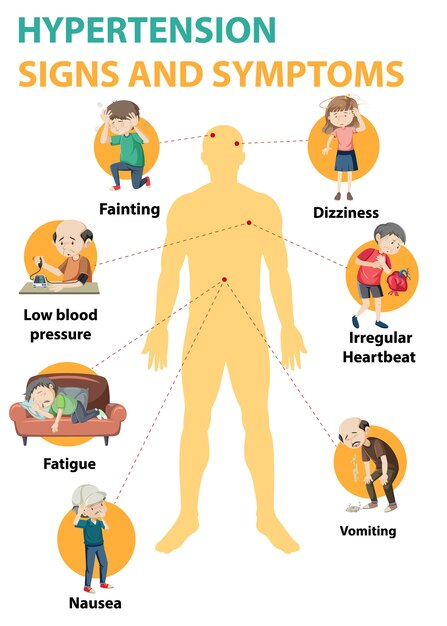
Source image
Do you know what hypertension is ?
Are you aware of symptoms of hypertension?
Can hypertension lead to other health problems?
Do you think lifestyle changes can effectively manage hypertension?
Do you know what hypertension is ? |
|---|
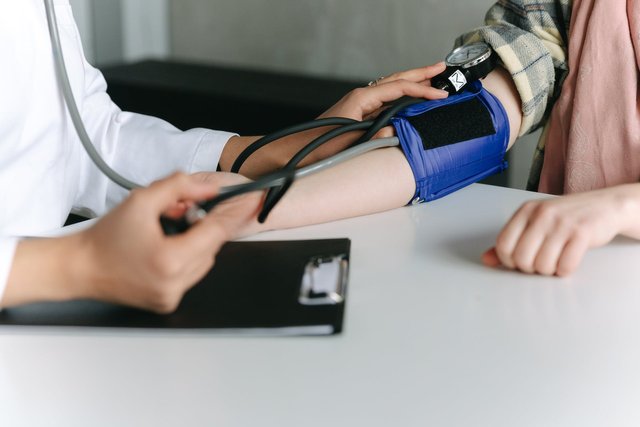
Pexels
Hypertension occurs when the force of blood pushing against the artery walls is always too high.
This puts more pressure on the heart, causing it to pump more blood.
In general, blood pressure of 130/80 mm Hg or higher is considered hypertension.
Blood pressure type: Normal: Blood pressure 120/80 mm Hg or less.
High: Top number is 120 to 129 mm Hg, bottom number is less than 80 mm Hg Stage
- Top number is 130 to 139 mm Hg, or bottom number is 80 to 89 mm Hg.
- The upper number is 140 mm Hg or higher, or the lower number is 90 mm Hg or higher.
Hypertension emergency: Blood pressure above 180/120 mm Hg requires immediate medical attention.
- Most people with high blood pressure have no symptoms, even if their numbers are dangerously high.
However, some people may experience: Headaches Shortness of breath Nosebleeds Risk
| factors and complications: |
|---|
- Untreated high blood pressure increases the risk of pain heart disease, stroke, and other serious health problems.
Lifestyle habits such as not smoking, exercising regularly and eating a healthy diet can help prevent and control high blood pressure.
Are you aware of symptoms of hypertension? |
|---|
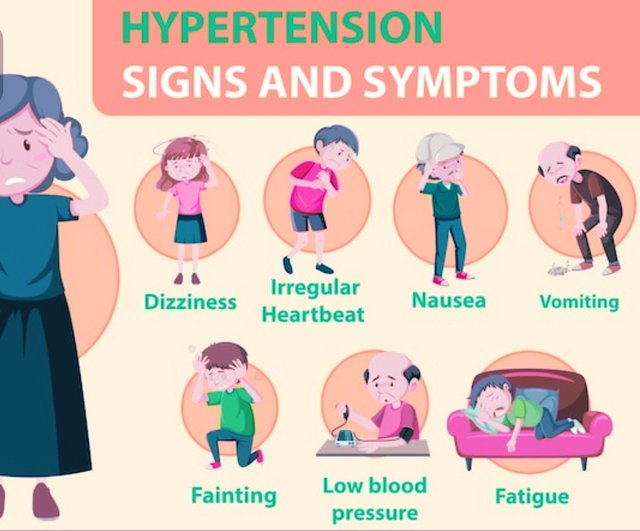
Freepik
- Persistent headaches, especially in the morning, can be a sign of high blood pressure.
- Shortness of breath or feeling short of breath even during light physical activity can be a sign of high blood pressure.
- Frequent or sudden nosebleeds can sometimes be associated with hypertension.
Chest pain or discomfort may be related to high blood pressure, although it is essential to rule out other causes.
|Fatigue:|
|-|
Feeling excessively tired or exhausted for no apparent reason may be related to hypertension.
- Blurred vision or visual disturbances may occur due to increased pressure in blood vessels.
Remember that many people with high blood pressure have no obvious symptoms, so it's important to have your blood pressure checked regularly.
If you experience any of these symptoms or have questions, consult a health care professional promptly.
Can hypertension lead to other health problems? |
|---|
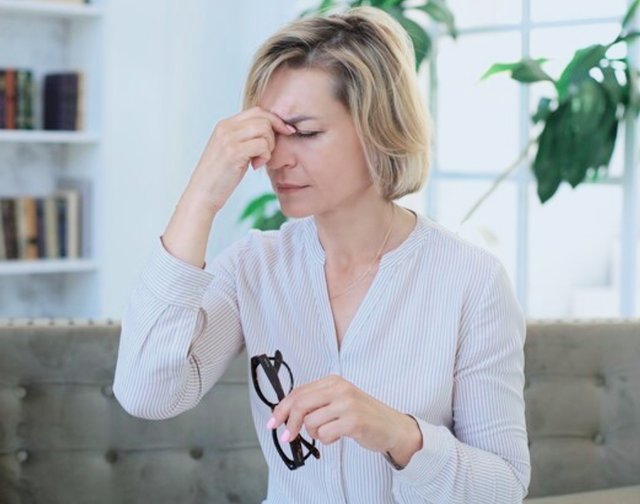
Freepik
- Hypertension is a major risk factor for heart disease, including coronary heart disease, heart attack and heart failure.
Increased pressure on artery walls can lead to damage over time.
- High blood pressure can cause narrowing or blockage of blood vessels in the brain, leading to stroke.
This is one of the leading causes of stroke worldwide.
- Kidneys play an important role in regulating blood pressure.
Chronic hypertension can damage small blood vessels in the kidneys, affecting their function and possibly leading to kidney failure.
- High blood pressure can damage blood vessels in the eyes, leading to conditions such as retinopathy (damage to the retina) and loss of vision.
- Persistent high blood pressure weakens blood vessel walls, increasing the risk of aneurysms (abnormal bulges of arteries).
A ruptured aneurysm can be life-threatening.
| Peripheral artery disease (PAD): |
|---|
- Hypertension contributes to narrowing of blood vessels in the legs and arms, leading to reduced blood flow.
- Hypertension often accompanies other conditions such as obesity, high cholesterol, insulin resistance.
Together, these factors form metabolic syndrome, which increases the risk of heart disease and diabetes.
- Some studies show an association between untreated hypertension and an increased risk of cognitive decline and dementia in older adults.
- High blood pressure can affect blood flow to the genital area, leading to erectile dysfunction in men and reduced sexual satisfaction in women.
- High blood pressure during pregnancy (such as preeclampsia) can harm both mother and baby.
It can lead to premature birth, low birth weight, and other complications
Do you think lifestyle changes can effectively manage hypertension? |
|---|
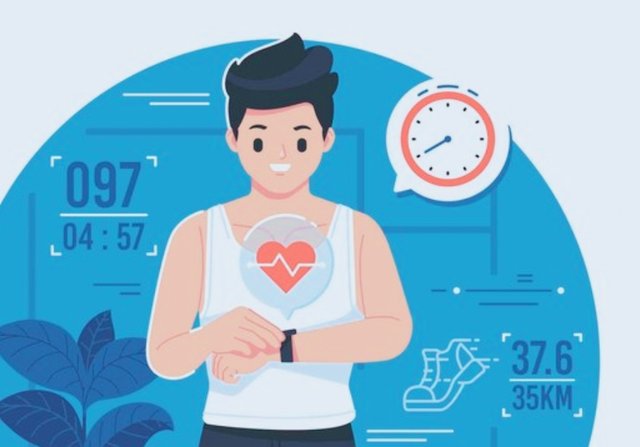
Freepik
- Limit salt intake to less than 2,300 mg per day (about a teaspoon).
Choose fresh foods instead of processed foods
- Eat the DASH (Dietary Approaches to Stop Hypertension) diet, rich in fruits, vegetables, whole grains, lean protein, and low-fat dairy.
- Include foods such as bananas, spinach, sweet potatoes and beans, which are rich in potassium.
- Limit alcohol intake to moderate levels (if you drink alcohol).
- Regularly do aerobic exercise (such as brisk walking, swimming or cycling) for at least 30 minutes most days of the week.
Strength training can also be beneficial.
- Maintaining a healthy weight: Losing even a few pounds can have a significant impact on blood pressure.
- Excess fat in the body contributes to high blood pressure.
- Practice stress reduction techniques such as meditation, deep breathing, yoga or mindfulness.
Chronic stress can increase blood pressure.
- Smoking damages blood vessels and increases the risk of heart disease Find support to quit smoking
| Limit caffeine and stimulants: |
|---|
- Moderate caffeine consumption: Too much caffeine can temporarily increase blood pressure.
Be careful with energy drinks and other stimulants.
Monitor your blood pressure regularly: Use a blood pressure monitor at home.
Track your results and share them with your healthcare professional
Invite friends
@sur-riti
@iftikhar62
@bonaventure24
Thanks dear 🙏





Twitter link
AsslamuAlikum hope your doing Great . Wao You Mentioned each and everything and explain everything in well detailed Proper Discription . After reading your bloq i gain more knowledge about it thanks For Such a nice entry in this contest.
Hello @zaink, hypertension brings very unfortunate health situations, so it is advisable to take into account the recommendations you leave in your publication.
Perhaps it is a chronic disease, but by following the instructions carefully, complications can be avoided.
Greetings.